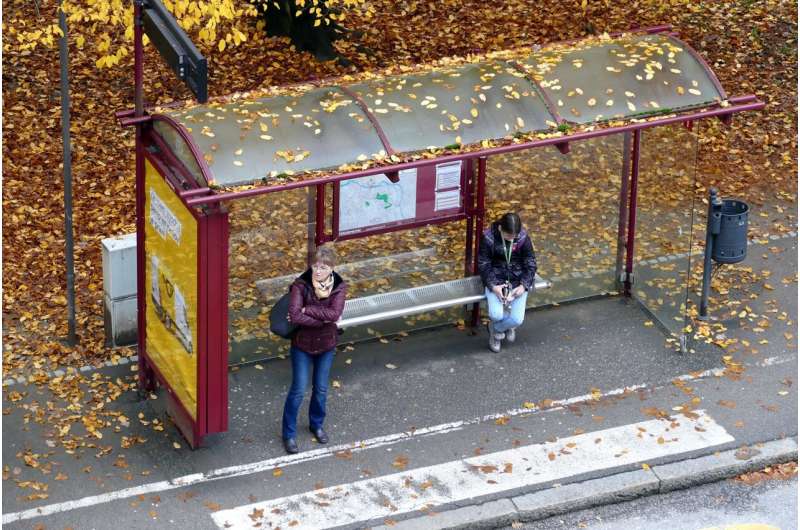This article has been reviewed according to Science X's editorial process and policies. Editors have highlighted the following attributes while ensuring the content's credibility:
fact-checked
proofread
Cancer survivors with transportation barriers to care face risk for emergency room use and mortality, new study shows

New research from scientists at the American Cancer Society (ACS) and Roswell Park Comprehensive Cancer Center has found delayed care due to lack of transportation is associated with increased emergency room (ER) use and mortality risk among adults with and without cancer history. Cancer survivors with transportation barriers had the highest risk. The study has been published in the Journal of the National Cancer Institute (JNCI).
"Transportation barriers prevent many patients with cancer from accessing timely and effective care. Lack of reliable and affordable transportation can lead to missed appointments, delayed diagnoses, treatment interruptions, and incomplete follow-up care," said Dr. Xuesong Han, scientific director, health services research at the American Cancer Society and senior author of the study. "These factors can worsen the prognosis and quality of life of cancer survivors, as well as increase the costs and burdens on the healthcare system."
For the study, researchers identified 28,640 adults with a cancer history and 470,024 adults without a cancer history from a nationally representative survey (2000-2018 US National Health Interview Survey) and its linked mortality files with vital status through December 31, 2019. Transportation barriers were defined as delays in care due to lack of transportation. Multivariable logistic and Cox proportional hazards models estimated the associations of transportation barriers with ER use and mortality risk, respectively, adjusted for age, sex, race/ethnicity, education, health insurance, comorbidities, functional limitations, and region.
The results showed 2.8% of cancer survivors and 1.7% of adults without a cancer history reported transportation barriers. Researchers also reported 7,324 deaths occurred in adults with a cancer history and 40,793 deaths in adults without a cancer history. Adults with a cancer history and transportation barriers, as compared with adults without a cancer history or transportation barriers, had the highest likelihood of ER use (adjusted odds ratio (aOR)=2.77) and all-cause mortality risk (adjusted hazard ratio (aHR)=2.28); followed by adults without a cancer history with transportation barriers (ER use aOR=1.98; all-cause mortality aHR= 1.57); and adults with a cancer history, but without transportation barriers (ER use aOR=1.39; all-cause mortality aHR= 1.59).
"Transportation is a critical health-related social need affecting cancer care quality and equitable access to care," said Dr. Changchuan Jiang, a medical oncologist at Roswell Park Comprehensive Cancer Center and lead author of the study. "Our research shows that value-based, patient-centered approaches are needed to address this critical issue and ensure that no one is left behind in their cancer journey."
"No one should have to go without lifesaving cancer treatments because they face transportation barriers," said Lisa Lacasse, president, American Cancer Society Cancer Action Network (ACS CAN), the advocacy affiliate of the American Cancer Society. "That's why we're advocating for policies that provide coverage of non-medical emergency transportation services for cancer patients and others with serious illnesses, particularly for Medicaid enrollees, who do not have the financial means or access to needed transportation."
ACS researcher Dr. Robin Yabroff is a co- author of the study.
More information: Changchuan Jiang et al, Transportation Barriers, Emergency Room Use and Mortality Risk among U.S. Adults by Cancer History, Journal of the National Cancer Institute (2023). DOI: 10.1093/jnci/djad050




















